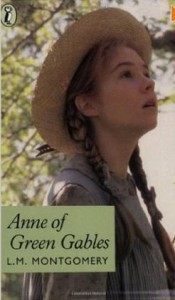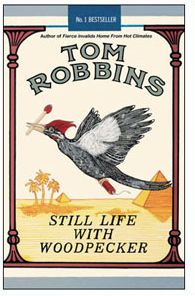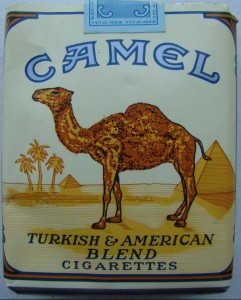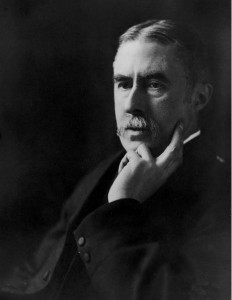I never read Anne of Green Gables. I remember seeing it on TV but about the only salient details that stand out now, rooting through the dusty attic of memories of black and white children’s entertainment seem to be old-fashioned clothes, shrubbery and the words “Ant Murilla” repeated about 500 times per episode. Why I’m wondering about this at all is because my dedicated manuscript editor emailed me to say she’d just had email from Amazon.com.
 Nothing unusual there. What was, was the suggestion from Amazon that Not Your Heart Away is in their opinion, “similar.” Not ‘if you like this book you might like these,” but outright ‘similar books.’ So I thought I’d better have a look and see what Anne of Green Gables was all about. I had a quick look on Wikipedia to see what happened to Anne. She was orphaned, spent much of her childhood in orphanages and then gets sent to rural Prince Edward Island after quite-old-in-those-days Mathew Cuthbert and Ant Murilla (sorry, I just can’t get that BBC Drama department Canadian accent out of my head) apply to adopt a boy orphan to help run their farm and get sent Anne instead. I’m not seeing it yet, frankly.
Nothing unusual there. What was, was the suggestion from Amazon that Not Your Heart Away is in their opinion, “similar.” Not ‘if you like this book you might like these,” but outright ‘similar books.’ So I thought I’d better have a look and see what Anne of Green Gables was all about. I had a quick look on Wikipedia to see what happened to Anne. She was orphaned, spent much of her childhood in orphanages and then gets sent to rural Prince Edward Island after quite-old-in-those-days Mathew Cuthbert and Ant Murilla (sorry, I just can’t get that BBC Drama department Canadian accent out of my head) apply to adopt a boy orphan to help run their farm and get sent Anne instead. I’m not seeing it yet, frankly.
Anne is described as bright and quick, eager to please, talkative, and extremely imaginative. She has a pale face and freckles and red hair.
Not Liz with brown hair and not Claire with dark hair then. And neither of those two could be described as eager to please, or certainly not eager to please Ben, anyway.
As a child of imagination, Anne takes much joy in life and adapts quickly, thriving in the close-knit farming village. Her talkativeness initially drives the prim, duty-driven Marilla to distraction, although Matthew falls for her charm immediately. Anne says that they are ‘kindred spirits’.
True, Ben falls for Claire’s charms pretty much immediately, but then, it doesn’t take much to get his attention in that respect. Ask Poppy.
Not Your Green Gables
The book recounts Anne’s adventures in making a home: the country school where she quickly excels in her studies; her friendship with Diana Barry (her best or “bosom friend” as Anne fondly calls her); her budding literary ambitions; and her rivalry with a classmate who teases her about her red hair. For that he earns her instant hatred, although he apologizes many times. As time passes, Anne realizes she no longer hates Gilbert but cannot bring herself to admit it. However, by the end of the book they become friends.
Not Your Heart Away is set in the countryside, admittedly, but there is a distinct lack of attention to school-work. Rejection, friendship and love, yes. It’s got that in common. Liz and Ben, well that’s another story, a much deeper one than the one he wanted to share about Claire. Whether those two were ever really friends is debatable. Bosoms feature quite prominently in Ben’s worldview, too.
The book also follows Anne’s adventures in quiet, old-fashioned Avonlea. Episodes include accidentally getting someone drunk.
I’m starting to see similarities here, although there is nothing accidental about any of the characters getting drunk. I suspect Poppy and Claire at least were quite a bit more drunk than Anne of Green Gables got, at least at that age. I certainly hope so, anyway.
At sixteen, Anne goes to Queen’s Academy to earn a teaching license. She obtains her license in one year instead of the usual two and wins the Avery Scholarship for the top student in English. Her attainment of this scholarship would allow her to pursue a B.A. degree on the mainland in Nova Scotia.
Bizzarely, someone who partly inspired the character of Claire recently got her own teaching licence, according to Facebook. Whether or not she won the Top Student award I’m uncertain about.
Near the end of the book, Matthew dies after learning that all of his and Marilla’s money has been lost. Out of devotion to Marilla and Green Gables, Anne gives up the Avery Scholarship to stay at home and help Marilla, whose eyesight is diminishing. She plans to teach and return to Green Gables on weekends.
I’m not spoiling the plot by saying nobody dies of a heart attack in Not Your Heart Away, although the play on the title might have been fun to do. Next time, maybe. Nobody starts going blind, although Liz would certainly argue Ben might as well be when it comes to anything Claire ever does. Deaf, too. Lots of money is lost though, and without a homesteading land grant available for over a thousand years in Wiltshire, Claire’s family have to make some tough decisions about where they are going to live. Her parents seem to have got a little confused about who they were living with too, particularly at weekends.
In an act of friendship, Gilbert Blythe gives up his teaching position at the Avonlea School to work at White Sands School instead. Anne can teach in Avonlea and stay at Green Gables all through the week. After this kind act, Anne and Gilbert’s friendship is cemented, and Anne looks forward to the next “bend in the road.”
Most people who knew Ben were convinced that the next bend in the road would be the last one they ever saw if they were in the same car and he was driving. Nobody got taught anything, least of all Ben. Work was just a tiny cloud on the far horizon in the land of lost content that was the summer of Not Your Heart Away.
But Anne of Green Gables does have some similarities. It’s got if not haunted bedrooms and a girl haunted by her future, at least haunted woods. It’s set in the middle of a rural nowhere, but with the same juxtaposition of the big world outside and the twining beauty of the trees and fields all around. Anne’s house is based on a very real house too, one that is now a tourist attraction rather than a spa for Olympic athletes, which is what happened to Claire’s house.
So, distinctly hmmmm, Amazon. I just hope Not Your Heart Away gets translated into 36 languages and made into three films and a TV series as well. It’s just that if it’s going to be on at tea-time I think the drinking, spliffing, attempted drink-driving and consensual clothes adjusting in parks is going to have to go.





